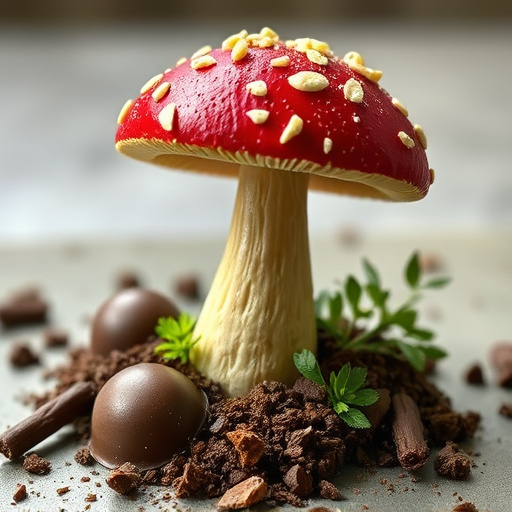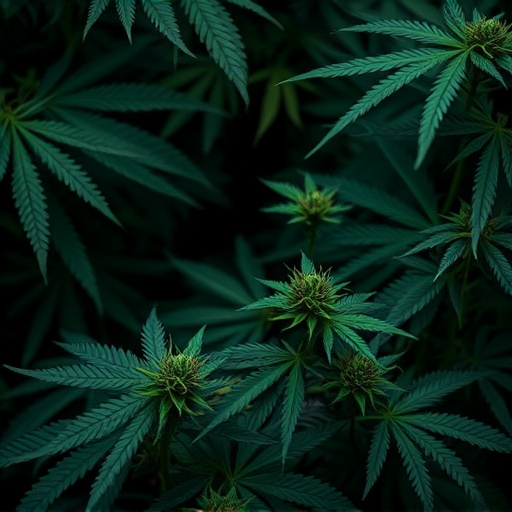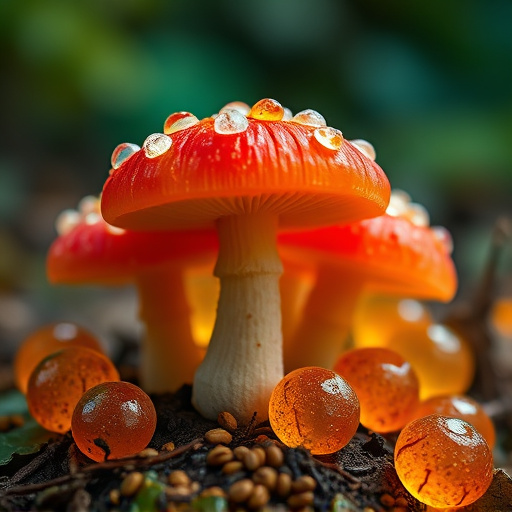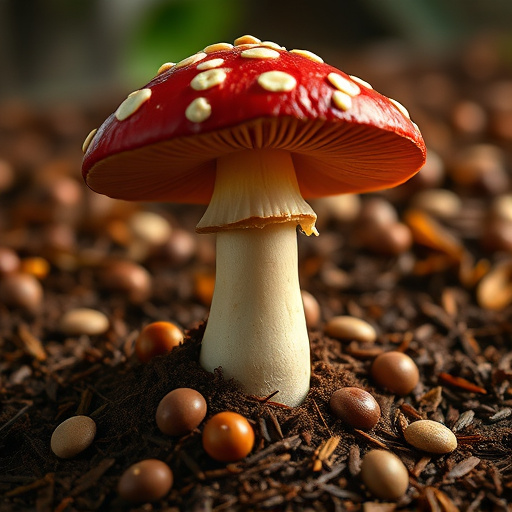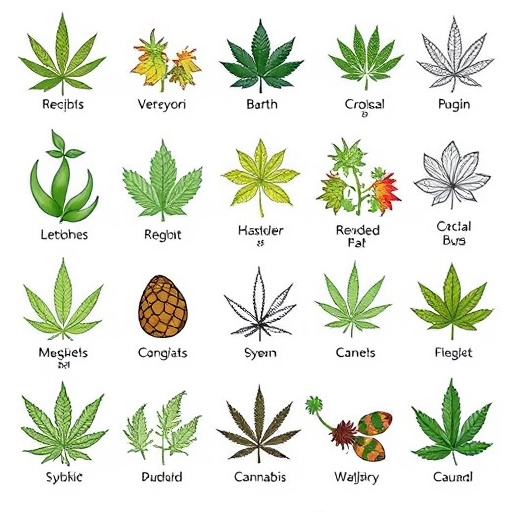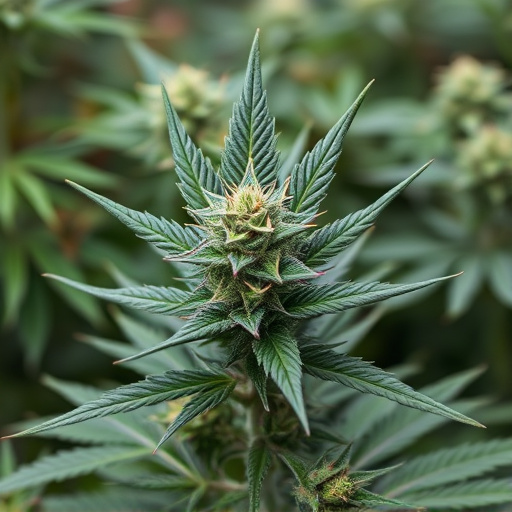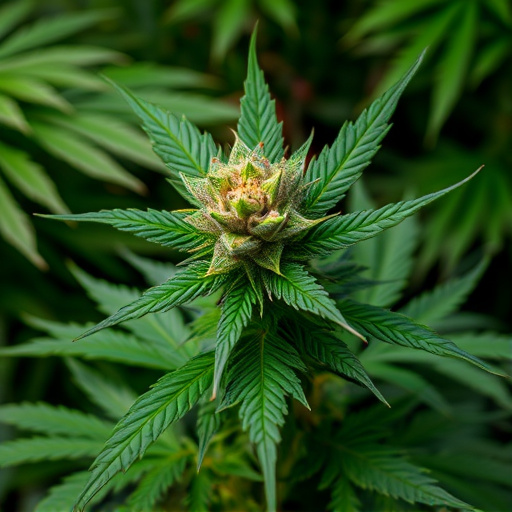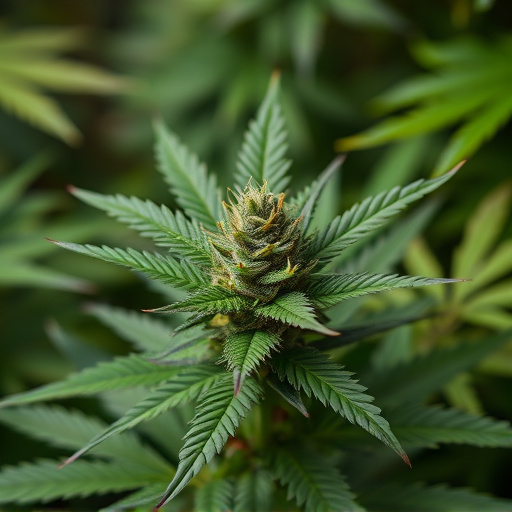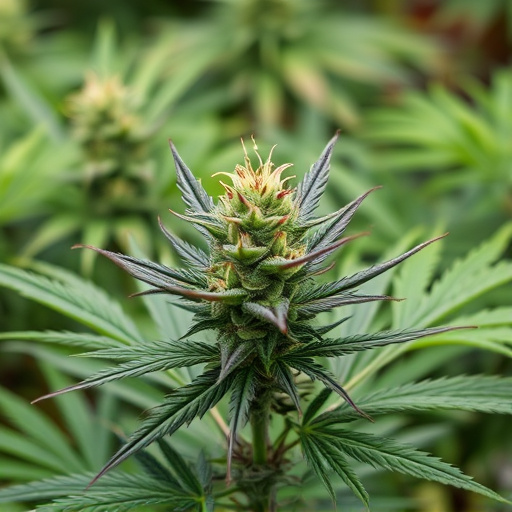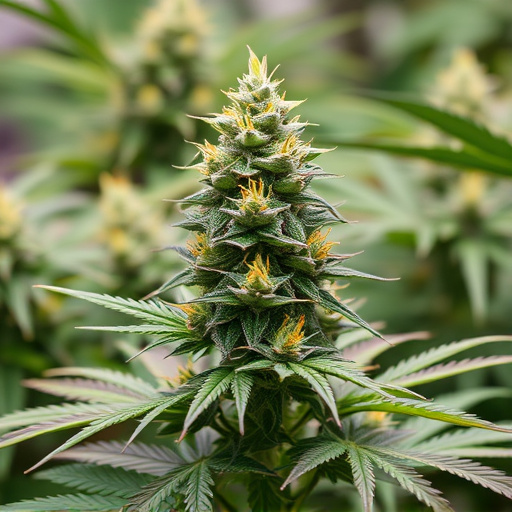Cannabis terpenes, like myrcene, significantly impact the scent and flavor of medical strains of cannabis, with skunkiness being a common trait. These natural aromatic compounds interact with our sense of smell, creating varied odors from floral/fruity to earthy/spicy. Breeders select for specific genes that produce these terpenes, leading to strains with enhanced skunk aromas. Cultivators can further manipulate scent profiles through farming practices, catering to diverse consumer preferences.
“Ever wondered why some medical strains of cannabis emit a distinct, skunky aroma while others are subtler? It’s all in the terpenes—the aromatic compounds responsible for a strain’s unique scent and potential effects. This article delves into the science behind skunkiness in cannabis, exploring genetic factors that contribute to potent odors and how environmental influences can shape a strain’s scent profile. By understanding these elements, cultivators can craft cannabis with desirable characteristics for diverse user preferences.”
- Understanding Cannabis Terpenes: The Key to Skunkiness
- Genetic Factors: Why Some Strains Inherit a Stronger Skunk Odor
- Environmental Influences: How Growing Conditions Impact Scent Profile
Understanding Cannabis Terpenes: The Key to Skunkiness
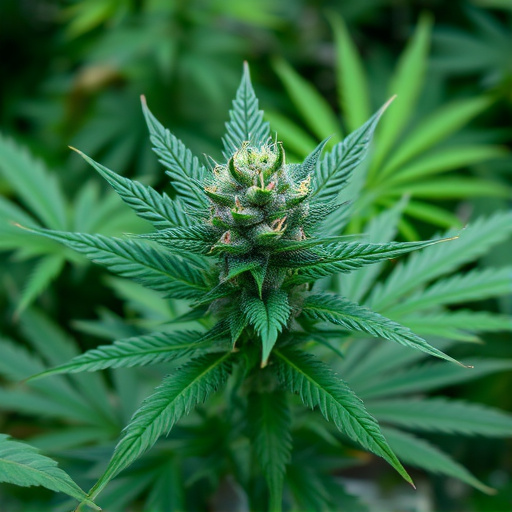
Cannabis terpenes play a pivotal role in determining the scent and flavor profile of different strains, with skunkiness being a notable characteristic. Terpenes are aromatic compounds naturally produced by cannabis plants, contributing to the diverse aromas we experience across various medical strains of cannabis. These volatile molecules interact with our sense of smell, creating the unique scents that can range from floral and fruity to earthy and spicy.
Among the many terpenes found in cannabis, myrcene is often linked to skunk-like odors. It’s one of the most abundant terpenes in the plant, giving off a distinct, pungent scent. Many medical strains known for their therapeutic properties also exhibit higher levels of myrcene, which can provide relief from anxiety and pain while promoting sleep. However, not all skunky aromas are created equal; some strains may have more subtle skunk notes integrated into complex terpene profiles, offering a nuanced and pleasant olfactory experience.
Genetic Factors: Why Some Strains Inherit a Stronger Skunk Odor
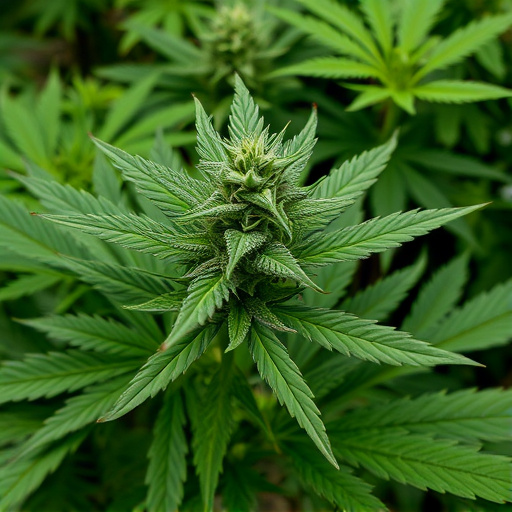
The smell of skunk, often associated with cannabis, is largely influenced by genetic factors. Each strain of cannabis has a unique genetic makeup that dictates its aroma profile. Certain genes within these strains are responsible for producing specific compounds that contribute to their characteristic scents. Some medical strains of cannabis contain higher levels of terpenes, which are aromatic organic compounds that give plants their distinctive smells and flavors. Terpenes like myrcene, limonene, and pinene are commonly found in cannabis and can significantly impact its odor.
In addition to terpenes, certain amino acids and other chemical components play a role in shaping the skunkier aroma. Genetic variations in these areas can lead to more pronounced skunk-like scents. As breeders develop new strains through selective breeding and hybridization, they often focus on enhancing desirable traits, including scent. This has resulted in some medical strains inheriting a stronger skunk odor due to their specific genetic lineages.
Environmental Influences: How Growing Conditions Impact Scent Profile
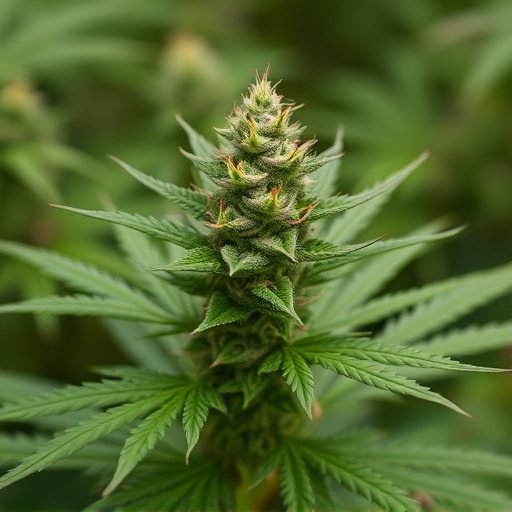
The scent of cannabis, particularly the skunk-like aroma associated with certain strains, is influenced by a complex interplay of environmental factors during the plant’s growth cycle. Farmers and cultivators play a crucial role in shaping the final fragrance profile through their farming practices and growing conditions. For instance, different soil types, nutrient availability, and exposure to various environmental stimuli can all contribute to variations in aroma development.
Medical strains of cannabis often boast diverse scent profiles due to selective breeding and cultivation techniques. Controlled environments allow cultivators to manipulate variables like light intensity, humidity levels, and temperature, which can significantly affect terpene production—the key compounds responsible for the characteristic scents. By optimizing these conditions, growers can enhance or alter the skunkier notes, creating a wider range of aromatic experiences for consumers.
The distinct skunk-like aroma associated with certain cannabis strains is a result of a complex interplay between terpenes, genetics, and environmental conditions. Terpenes, aromatic compounds responsible for the diverse scents in nature, play a crucial role in shaping the olfactory profile of medical strains of cannabis. Understanding these factors empowers cultivators to breed and grow varieties that cater to specific preferences, ensuring consumers can enjoy a wide range of scent experiences without compromising quality or efficacy. By recognizing the influence of genetics and environmental variables, growers can further refine their practices, leading to even more diverse and desirable skunkier medical strains.



